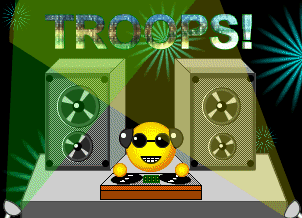In 1927, the Radio Corporation of America merged with the Victor Talking Machine Company to form RCA Victor. Today, the prospectus for the merger would use words like “positive synergies”. Back then, the men on the two boards of directors would have said, “We think that marrying radios and record players is going to make us a hell of a lot of money.” It was a less pretentious era.
Sergei Rachmaninov renewed his contract with the merged company, RCA Victor. Back then, it was common for radio networks to broadcast classical music concerts. Sergei didn’t want anyone bootlegging recordings of his concerts, and he didn’t want the occasional musical mistake to be perpetuated for posterity. As a result, he got a provision in his contract that if a concert of his was to be broadcast, as soon as he began playing, the network would cut away and play his recording of the Second Piano Concerto instead. Sergei Rachmaninov didn’t miss an angle, and he was way ahead of his time. The Beatles and Bob Dylan had nothing on him!
Around this time comes a story about a rehearsal at Fritz Kreisler’s house where Sergei accompanied the great Irish tenor John McCormack at the piano in several of his songs. In professional circumstances, it was said that Rachmaninov never cracked a smile or spoke an encouraging word. But at the end of the rehearsal, Kreisler swore that Sergei not only smiled but actually said, “Good”. Others present said that Rachmaninov had merely burped and grimaced. It was the kind of thing people said about the man.
In 1928, Vladimir Horowitz came to America, and Rachmaninov sought him out. His performance of the Third Piano Concerto brought this response from Sergei: “He swallow it whole. He had courage, the intensity, the daring. This is the way I always dreamed my concerto should be played, but I never expected to hear it that way on Earth.” The two men became close friends, and Sergei sought him out as a partner in two-piano duets. The fact that none of these duets was ever recorded is one of the great tragedies of classical music.
In March 1931, Sergei finally broke his silence about the Communist government in the Soviet Union with an erudite letter to the New York Times. The reaction was fast and furious: Rachmaninov’s music was banned in the Soviet Union, and royalty payments dried up. Sergei now knew that there would be no going back.
In 1931, at age 58, Rachmaninov turned out one of his late piano masterpieces. Arcangelo Corelli, a composer of the Baroque period, had taken a common bass line known as ”la folia” and placed it in a sonata for violin, bass and harpsichord. Sergei took that bass line and turned it into a 20 minute miracle. You can hear the first hints of Gershwin in some of the variations. This video posts the name of each variation during the piece.
Rachmaninov: Variations on a Theme of Corelli, Op. 42 (Rodriguez on piano)
